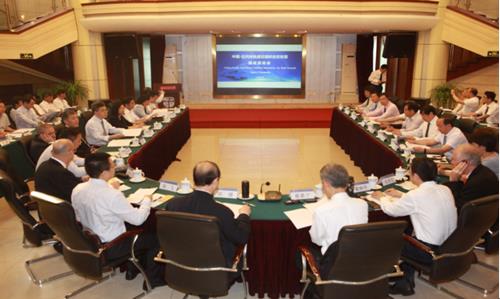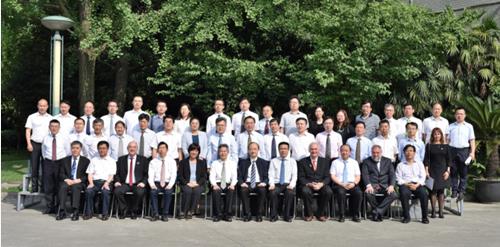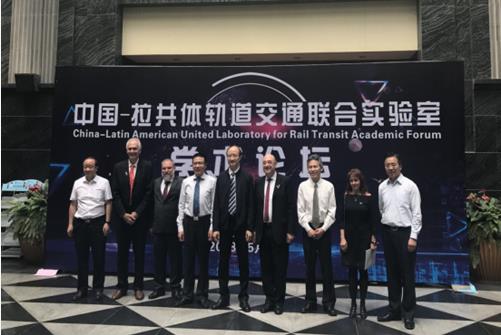On May 25, the launching ceremony of Sino-Latin American Joint Laboratory of Rail Transit was held on Jiuli campus, Southwest Jiaotong University.
In the first session, Dr. Xu Fei, President of SWJTU, introduced the historical development of SWJTU and the progresses of international scientific and technological cooperation. He called upon all the parties involved to be dedicated to building the lab into an excellent international joint platform.
Dr. Liang Shulin, who is in charge of the construction of the lab, presented the construction plan of the lab regarding basic information, goals and fields of research, expected outcomes and indicators of performance, management and implementation, and anticipated social and economic benefits.
Dr. Zheng Jian, Deputy Director of the National Railway Administration, spoke highly of the significance of establishing Sino-Latin American Joint Laboratory of Rail Transit. He added that, as the first regular aid project, the lab would play a key role in setting up an efficient and energetic partnership featured by scientific innovation between China and Latin American countries. That means China will work closely with its Latin American counterparts to integrate diverse resources available to make a Sino-Latin American model of cooperation.
Zheng hoped that SWJTU would contribute to the development of the lab in following three aspects. SWJTU should coordinate with all the parties involved to promote the integration of technologies of rail transit while exploring the transferring and application of innovated technological products into engineering construction. In addition, centered on scientific and technological innovation, the lab will serve to improve the safety and life circle of maintenance of rail transit system.
According to Zheng, the National Railway Administration is groping for a management mechanism of international technological cooperation center in rail transit and ramping up supports for those international platforms.
In the second session, CAS Academician ZhaiWanming delivered an academic report themed Technological Challenges Emerging among the Large-scale Operation of High-speed Rail.
Dr. Richard M. Stephan from Universidade Federal do Rio de Janeiro shared his insights into the commercialized application of superconducting maglev technology and Sino-Brazil technological cooperation.
Dr. Zhang Xinning, the Chief Engineer of CRRC, gave a speech themed Innovation-Driven for Win-win Cooperation. His introduced the basic information and innovation capability of CRRC and the exports to Latin American region.
Dr. Zhu Ying, General Manager of China Railway Eryuan Engineering Group Co.Ltd., illustrated the efforts and achievement made by one of the China’s largest railway enterprise to serve the implementation of One Belt and One Road Initiative. He highlighted what Eryuan has contributed to the development of rail transit in Latin American region, such as the Twin Ocean Railroad Connection Project.
Dr. Guillermo O. García from Universidad Nacional de Río Cuarto made a brief introduction to scientific research strength of Argentina. In his speech, Guillermo focused on the latest progresses achieved by Electronic Engineering Research Group of UNRC.





